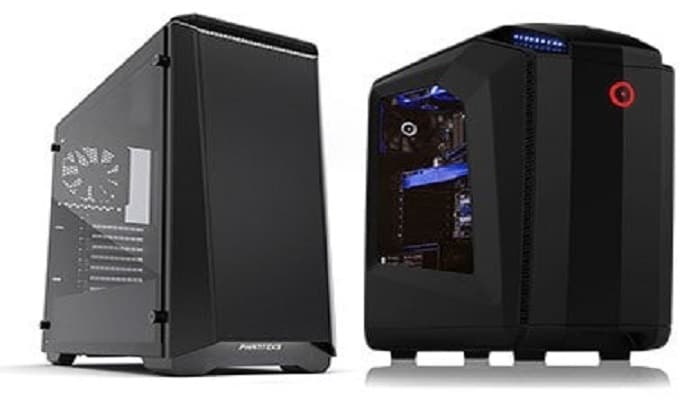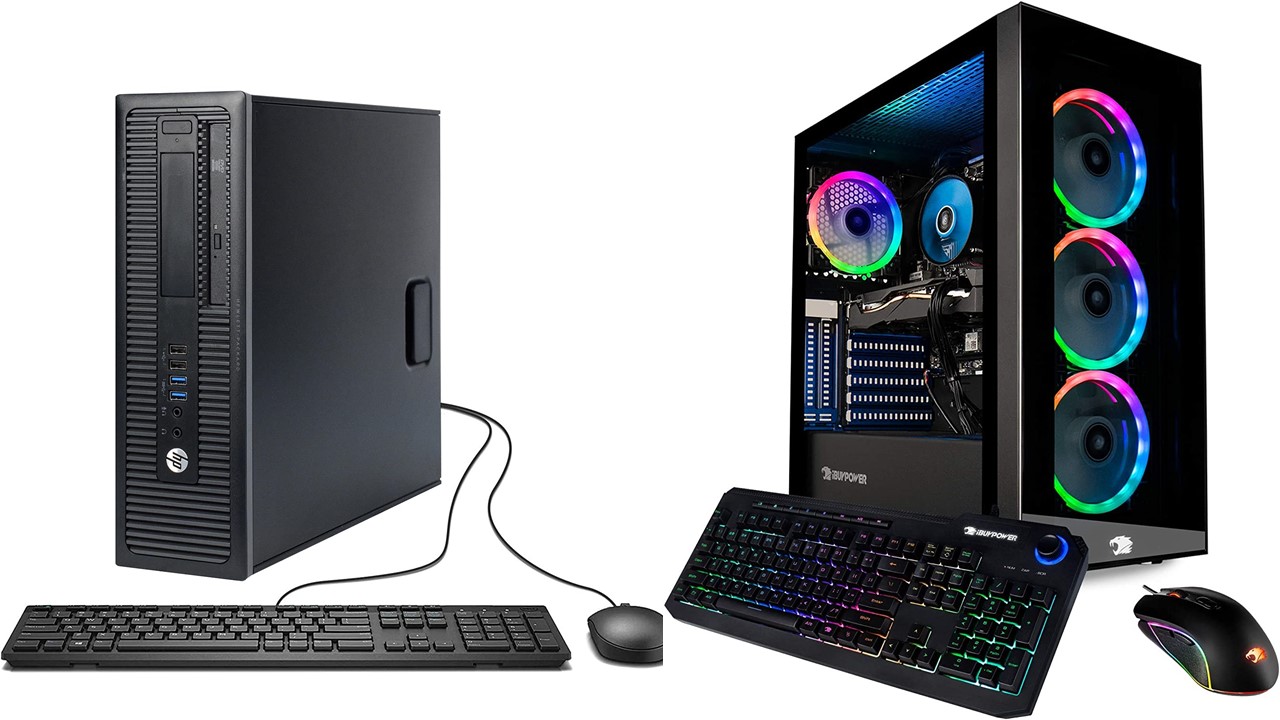Yes, it is true that a gaming computer is designed especially for playing games, which a regular desktop computer may be incapable of.
However, there are a few significant differences between a gaming computer and a regular desktop computer.
In This Article
KEY TAKEAWAYS
- A gaming desktop computer will come with a better and more advanced audio system while a regular model will have a basic audio system, if at all.
- A regular desktop computer will offer very limited or no portability in comparison to a gaming desktop. However, it is nothing compared to a gaming laptop.
- Customizing a regular desktop computer is really difficult in comparison to a gaming desktop.
- The power consumption of a gaming computer will be much more due to its high performing parts in comparison to a regular desktop computer.
- Cooling system CPU, RAM, GPU, and price of a gaming desktop is higher than a regular desktop computer.
8 Differences Between Gaming Desktop and Regular One

1. Audio
A gaming computer will typically come with a better and higher end audio system. This ensures clear and distinct sound enabling the gamer to get transported into the virtual world of adventure.
Without a better audio, the top-class graphics will be of no use and will not be able to provide a virtually flawless and seamless gaming experience.
On a regular desktop computer, you will find a basic audio system, and some may not have any at all.
To listen to music on these computers, you will need to use additional speakers that you can connect either via Bluetooth or through a USB cable, depending on the model and its features.
2. Portability
If you are using a regular desktop computer, it will have limited or no portability.
Therefore, if you are an active, serious and addicted gamer and want to battle it out in different tournaments and gaming LAN parties, then this is certainly not a device for you to possess.
On the other hand, a really good gaming desktop computer will allow you some portability than a regular desktop that comes with lots of wires and cables.
However, if you choose to use a laptop for gaming, it will be more portable in nature. These are becoming excessively thinner these days to add to its portability allowing you to play games virtually from anywhere and everywhere.
3. Customizability
The gaming desktops are much more customizable than a regular desktop, and even the laptops, in some cases. There is literally no limit to it. You will be surprised at your ability to customize a gaming desktop.
On the other hand, if you want to customize your regular desktop computer, you will find there is limited scope for it.
Even if you can, you will need to have adequate knowledge about the hardware components inside it that may need to be tweaked or replaced to suit your needs.
4. Display
The gaming computers come with a better display. This will support the higher resolution and smoother, better, and faster frame rates per second required for uninterrupted gaming.
The display of the gaming computers will be crispier and richer as compared to a regular desktop PC.
On the other hand, a regular desktop computer does not need such a high-end display that comes with unique features like touch screens, OLED and G-Sync display.
5. Power
The gaming desktop computers have a lot of high-performing components and hardware inside it. All these need a lot of power to operate, thereby increasing the power consumption.
The power consumption of a regular desktop computer, on the other hand, will be far too less than a gaming computer.
6. RAM
Though the minimum requirement for a gaming computer is 8 GB, it is not uncommon to find a system that comes with 16 GB of RAM. This is a lot of RAM to handle a lot of data in the form of memory, graphics, and audio.
Regular desktop PCs, on the other hand, will come with 4 GB RAM, on average, which is just enough to perform your daily tasks on the computer.
7. Cooling System
Since gaming computers consume much more power than the regular desktop computers, it will generate much more heat at the same time.
Therefore, it comes with a high-end cooling system. Some high-end gaming computers may even have liquid cooling tubes in it for better cooling.
In a regular desktop just a simple cooling system may be enough to cool the GPU, processor and other components installed inside it. It will certainly not come with an expensive liquid coolant in it.
8. Pricing
A gaming computer will have high-end components such as processor, monitor and graphics card in it. This will increase the price of it eventually.
The regular desktop, with just the basic amenities and components in it, will not carry a price tag as high as a gaming desktop computer.
Which is Better – Gaming Desktop or Regular?

Both gaming and regular desktop computers have its own pros and cons. Therefore, the one you will choose will primarily depend these and on three other basic things such as:
- Your needs
- Your preference and, of course
- Your budget.
However, if you have a notion that gaming computers will not allow you, or your child, to perform other computing jobs, then you are highly mistaken.
Ideally, a gaming computer will work just like a regular desktop computer.
The only additional benefit of a gaming desktop computer is that it will allow you to play high-end games while a regular computer will permit you to play only those basic games that often come pre-installed in it.
Therefore, there is literally nothing called a ‘better computer’ since both with have similar components, albeit with varying capacities, such as:
- A CPU for processing data
- A RAM for temporary storage of data
- A hard drive or Solid-State Drive or Cloud space for permanent storage of data and
- Different input/output devices such as keyboard, mouse, video monitor and audio.
The bottom line is, a gaming desktop computer will serve both your purpose, your work and entertainment, which is the only drawback of a regular desktop computer.
Conclusion
While gaming computers are designed specifically for gaming, they have several differences when compared to regular desktop computers.
Gaming computers have a better audio system, are more portable, and more customizable.
They also require more power due to their high-performing components, have better displays, and come with a high-end cooling system.
However, they are also more expensive than regular desktop computers.
Ultimately, the choice between a gaming desktop and a regular desktop will depend on the user’s needs, preferences, and budget.